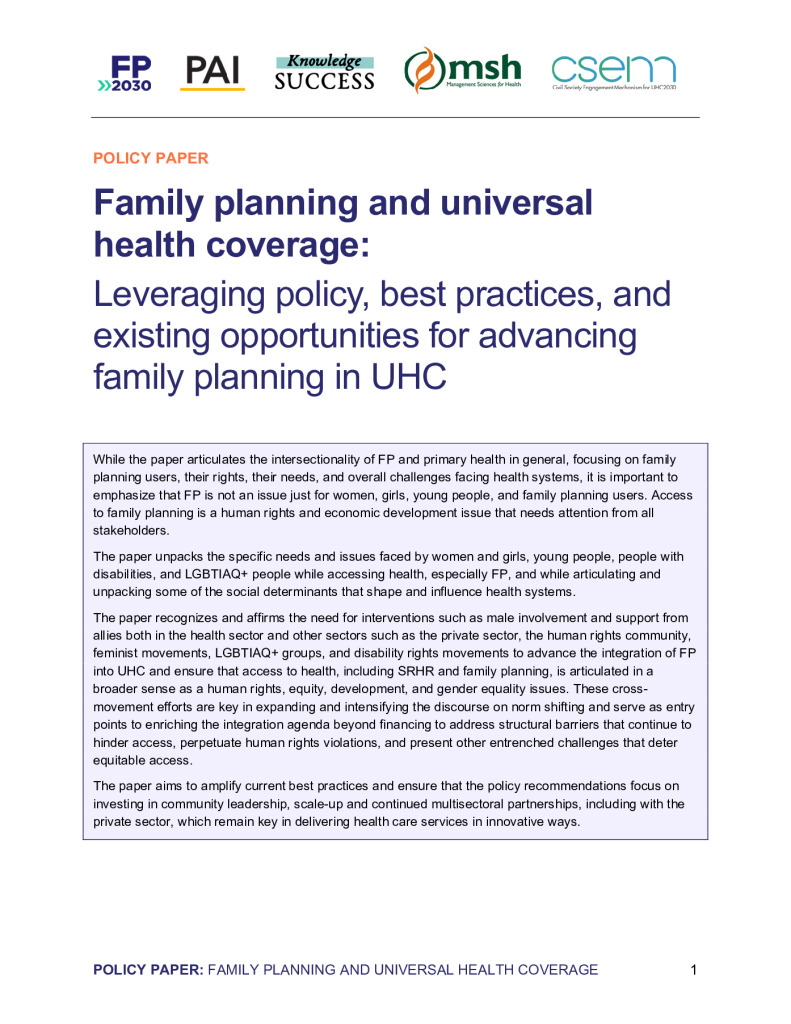
Resources
Family planning and universal health coverage: Leveraging policy, best practices, and existing opportunities for advancing family planning in UHC
Publications
Previous

Family Planning and Universal Health Coverage: Fac...
Next

Committed to Family Planning: Learnings from Nine ...
Topics:
Disability Rights
LGBTQIA+
Rights-Based Family Planning
While the paper articulates the intersectionality of FP and primary health in general, focusing on family planning users, their rights, their needs, and overall challenges facing health systems, it is important to emphasize that FP is not an issue just for women, girls, young people, and family planning users. Access to family planning is a human rights and economic development issue that needs attention from all stakeholders.
The paper unpacks the specific needs and issues faced by women and girls, young people, people with disabilities, and LGBTIAQ+ people while accessing health, especially FP, and while articulating and unpacking some of the social determinants that shape and influence health systems. The paper recognizes and affirms the need for interventions such as male involvement and support from allies both in the health sector and other sectors such as the private sector, the human rights community, feminist movements, LGBTIAQ+ groups, and disability rights movements to advance the integration of FP into UHC and ensure that access to health, including SRHR and family planning, is articulated in a broader sense as a human rights, equity, development, and gender equality issues. These cross movement efforts are key in expanding and intensifying the discourse on norm shifting and serve as entry points to enriching the integration agenda beyond financing to address structural barriers that continue to hinder access, perpetuate human rights violations, and present other entrenched challenges that deter equitable access.
The paper aims to amplify current best practices and ensure that the policy recommendations focus on investing in community leadership, scale-up and continued multisectoral partnerships, including with the private sector, which remain key in delivering health care services in innovative ways.









